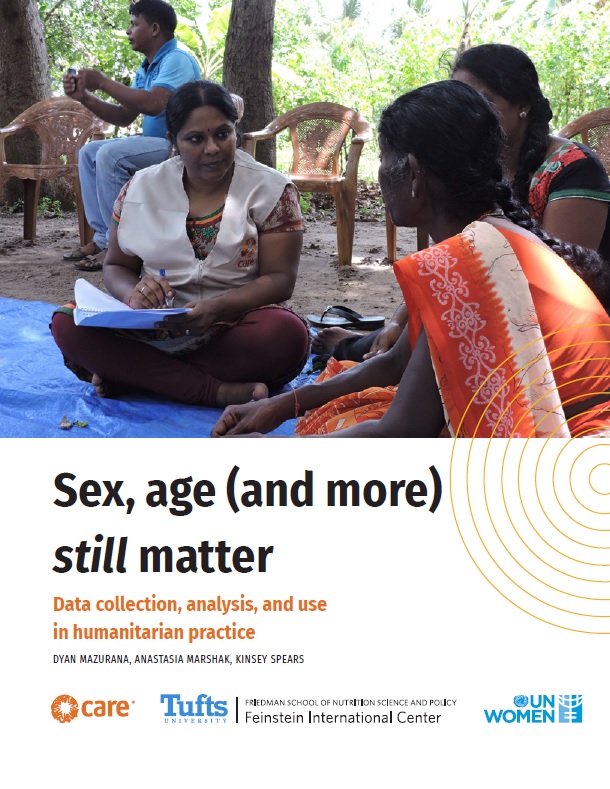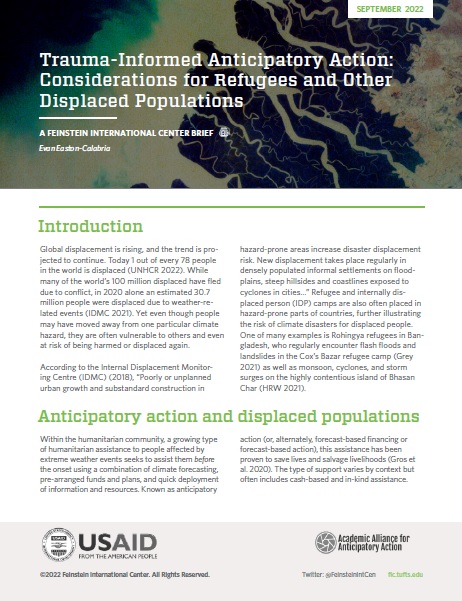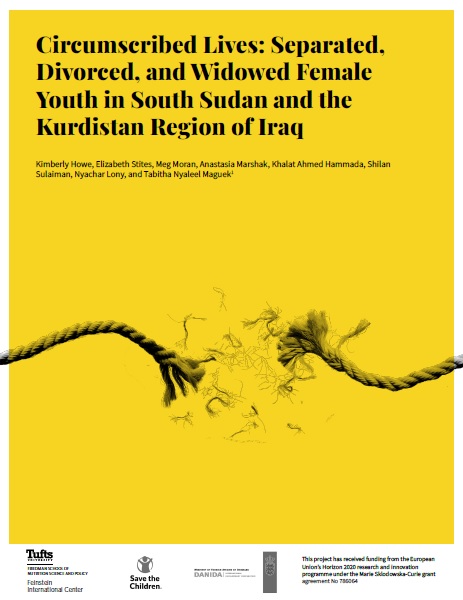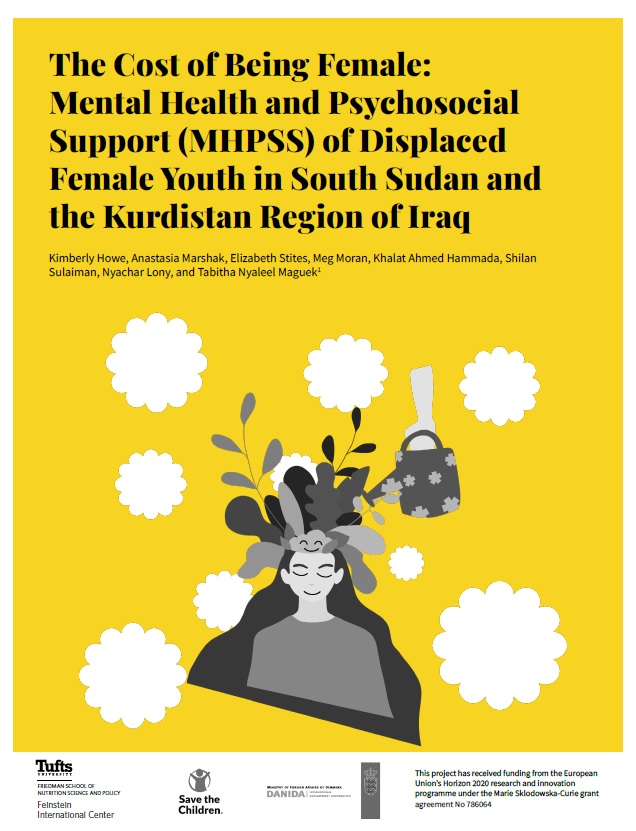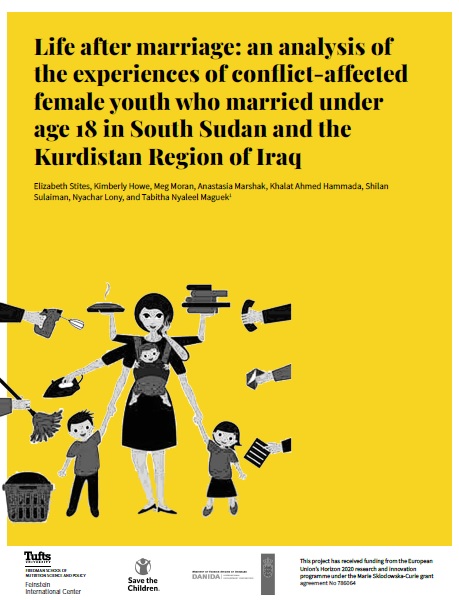Between 2004 and 2014, UNHCR’s Confidence Building Measures (CBM) program helped more than 20,000 refugees in the Tindouf desert camps of Algeria to visit their families in Western Sahara, from whom they’d been separated since the conflict in Western Sahara began (late 1970s). The CBM program was brought to a halt by politics, but the report suggests that the time is right for this ‘humanitarian bridge’ to be re-opened. This report gives a human perspective of the experiences and personal impact that CBM’s family visit program had on Sahrawi refugees and their families.
Flights Above the Fray: The experiences and uncertain future of UNHCR’s family visit program for Sahrawi refugees
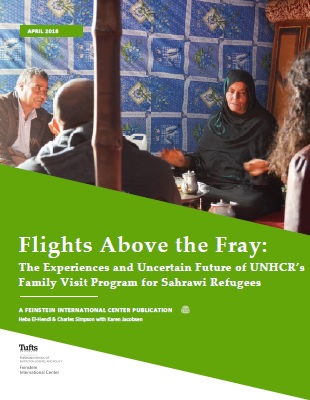
ASSOCIATED PROJECT
SUBJECTS
PUBLICATION TYPE
LOCATION

RELATED PUBLICATIONS
This paper examines the role of marital status and motherhood on schooling experience and educational interruption, attainment, and aspirations in South Sudan and the Kurdistan Region of Iraq.
•
This brief builds on the existing body of knowledge on trauma-informed practice to explore ways that anticipatory action for displaced populations can be improved.
•
Very little is known about the experiences of female youth who marry under 18 and later become separated, divorced, or widowed. This briefing paper underscores the unique vulnerabilities and challenges that these youth face in the Kurdistan Region of Iraq (KRI) and South Sudan.
•
This briefing paper outlines the situation of displaced female youth—unmarried, married, divorced, widowed—from a mental health and psychosocial functioning (MHPSS) lens.
•
This briefing paper examines the experiences of life after marriage for female youth who married under the age of 18 in South Sudan and the Kurdistan Region of Iraq. It describes how early marriage affects education, mental health, protection issue, and family dynamics.
•

